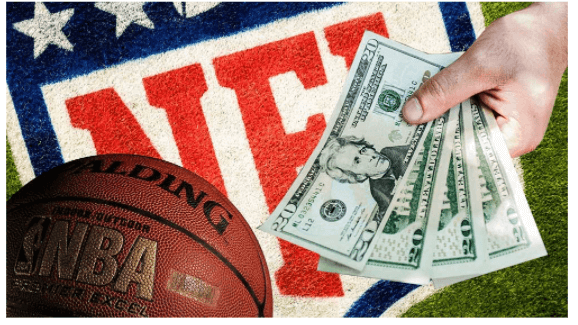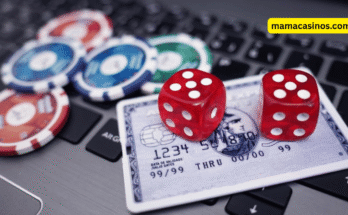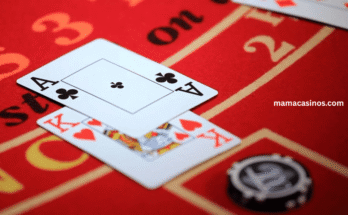Sports betting is one of the most exciting ways to gamble, and it’s one of the very few games where professionals can make smart money.
Every year, gamblers bet billions of dollars on big games like the Super Bowl and NBA playoffs. But there’s a significant emotional component to the betting, and that’s where the money is.
Oddsmakers create lines where they think they can get equal money to flow on both sides of the line. Amateurs will typically bet on their favorite team, which puts a lot of sucker money in the pot.
Favorite teams might be from big markets or passionate fanbases, while the actual odds of covering the spread might be slightly off.
Professionals will try to figure out a more accurate score profile and then see where the lines might be emotionally skewed. That’s statistically where the money is.
You Don’t Have to Pick the Winner
The smart money usually bets on the underdogs. The reason is that teams need to win the game, not cover the spread. A winning team will start playing defense late in the game, and the point spread isn’t always covered.
A handicapper betting on the Super Bowl isn’t betting on their favorite team or the team they think will win. They’re betting that the spread or over/under won’t be covered.
Amateur bettors tend to bet on their favorite team, which is usually the team that’s most likely to win. Heavy favorites will end up with point spreads that are unrealistic.
Online betting makes it easy for amateurs to bet with their hearts. Bets that are placed based on emotions are sucker money waiting to be taken by the pros.
Sportsbooks Don’t Have Inside Information
Sportsbooks have experienced scouts and handicappers. They use public information to make guesses about where the money will go in the betting market.
On the other hand, sportsbooks aren’t getting phone calls from coaches and trainers trying to make extra money selling information in the middle of the night.
Think about it for one second. If insiders were selling information, they would be getting caught. Bookies not in on the deal would hear about it, and it would all be over pretty fast.
Las Vegas and bookmakers had a shady reputation 50 years ago, but today bookmaking is a professional business run by statisticians.
Fixes Just Don’t Happen
One of the biggest misconceptions is that fixes are common. The truth is that there are many competing bookmakers, and they’re all on the lookout for tidal waves of unnatural money coming in.
If the money looks strange, bookmakers will go into a frenzy trying to layoff the money, and police will get involved. Keep in mind that Las Vegas, in particular, has massive government support.
The other problem is that sports stars are paid a lot of money. The significant players who could fix a game have million-dollar contracts.
In order to pay even a few of those players enough to fix a game, the bets would have to be enormous, and fixers would be distributing bets through hundreds of books. That’s a lot of opportunities to get caught.
It would be tough to fix the NBA, NHL, or NFL, because of the amounts of money involved. It would be somewhat easier to buy a small amateur game, but significant bets would also raise red flags.
In the end, handicappers don’t fix games. Instead, they rely on a superior understanding of statistics and look for places where the money line doesn’t follow the actual odds of winning or losing a game.
Sports Journalists aren’t Reliable
If media experts know how to make millions of dollars off of a game, why are they bothering to write newspaper columns? These betting tips are pure entertainment, dreamed up during the two hours a newspaper reporter has to put out their word count.
Media experts are similar to touts promising insider information. The media is in the business of making entertaining content, not predicting winners. They’ll be making a new prediction and spinning the last game within minutes of the final buzzer.
There’s also no secret information in sports anymore. All media outlets compete to put out lots of content, so they don’t have anything held back.
Sportswriters are like everyone else in journalism. They have a lot of work in front of them and not nearly enough time to make all of their deadlines. They’re writing as fast as possible, which isn’t a great way to make accurate predictions.
ESPN covers betting lines on the NFL season, MLB, and NBA, but they don’t spend much time trying to make accurate predictions. Sportswriters make money by creating entertaining content that’s soon forgotten.
Sports bettors are better off looking into factual information about the teams. Look for places where a money line isn’t quite right.
Don’t Simply Bet Against Conventional Wisdom
There’s both amateur and professional money on every game. It’s almost impossible to know where some of the money is coming from, so you always have to assume that professionals will be pushing the line to a more accurate number.
Beating the lines means being good enough to get into the top tiers of professional handicappers. You have to be good enough to beat a lot of professionals if you want to have a good winning percentage.
The public isn’t always wrong. But amateurs are emotional, and that’s where professional gamblers make money.
Oddsmakers are looking to set betting odds that will bring in money on both sides of the line. Sportsbooks don’t bet against punters. They try to have even money on the line and then make money through commissions.
Since the books are set up to attract money rather than predict winners, look for money lines not supported by facts.
An underdog with a great story might attract emotional money, or the heavy favorites might have an unrealistic point spread.
You Can’t Win Them All
Some of the touts promoting inside information to sports bettors are honest and legitimate handicappers. But think about the business. If someone is good at predicting winners, why aren’t they betting on the games themselves?
If you’re paying someone a few hundred dollars for information, you need to know who they are. Are they professionals who are already betting a lot of money through multiple books? If not, why don’t they trust their judgment?
Anyone with enough time to spend marketing their information to amateurs isn’t spending enough time on their research. They’re also giving away their research too cheaply.
It’s easy to find touts promoting risk-free betting and unrealistic chances of winning. The truth is that the best handicappers are right 55-60% of the time.
55-60% of the time is a significant enough margin to make money if you’re good with your bankroll. These professionals are statisticians, and they play the odds.
It’s tough to get better than 60% because other professional handicappers are doing the same thing. The professional money keeps the line pretty tight.
Big Payouts are a Trap
It’s normal to see 11 to 10 odds against a point spread or the over/under. There are exotic bets, though, which seem to pay more.
Gamblers can bet parlays on two or three-game groups, but the odds of winning those parlays are modest. The betting odds might rise to 13 to 5, but the odds of winning might be 3 to 1.
The amount of money you can win is significant, but you need to look at each game statistically. Spread your bets into situations where you have a statistically good chance to make a little money on each game.
The extra difficulty in winning parlays makes these bets for suckers. Handicapping is looking for specific situations where the line is statistically inaccurate.
Betting on multiple games is really the realm of fantasy football. Following lots of games and making accurate predictions about all of them will be a lot of work, and it’s very risky. The payouts just aren’t going to cover the risk.
Nobody is Due for a Win
One of the biggest sports betting myths is that teams are due a win after a long dry spell. This myth isn’t statistically supported.
Nobody is due a win. Each situation has to be looked at individually and emotionally. Each case has its circumstances to consider.
Professional handicappers do tend to bet on the underdogs in many sporting events. Pros favor underdogs because the winning team is simply trying to win, not cover the betting spread.
In NFL games, the better team often wins, but there is tremendous parity in the league. The fourth quarter is dominated by the winning team playing defense and the losing team trying to edge out a win.
In NBA games, critical games often go down to the wire. Leads are traded back and forth throughout the game, with the last few minutes being crucial.
Better teams do win an overwhelming number of games. If sports betting were about picking winners, it would be easy. Instead, the job of a winning handicapper is to look at the money lines and make decisions based on statistics.
Everyone Knows about Injuries Already
The sports world is filled with information. ESPN covers every injury in detail, and it’s all public information. That information is already factored into the money lines and is well known to professional bettors.
If you’ve heard about an injury, it’s safe to say that everyone else has heard too. You probably got the information from ESPN, which has an audience of millions.
Touts love to talk about injuries. They usually present this information as inside information, but it never is. A trainer who leaked information would get caught instantly, with severe consequences.
The truth is that sports injuries are either well-known or are very closely-held secrets. Don’t go looking for secrets because they probably aren’t true.
You Won’t Get Something for Nothing
There is no easy money in sports betting. Even the best sports bettors will lose a lot of bets.
If you want to make money in sports betting, you need to look at the information and make informed decisions. Go over the stats and look at all of the data.
Sports bettors work hard to understand the games they bet on. They read weather reports and look at how the teams are playing. They look at the psychology of both teams and make predictions.
Successful handicappers put a lot of time and effort into their research. To join their ranks, you have to be willing to put in a similar amount of effort.
Is sports betting based on luck?
Sports betting has an element of luck, but it’s also one of the few places where smart money can win.
Smart money looks at statistics and tries to guess where the amateur money is making poor predictions.
The element of luck is always present, though. There’s enormous parity between elite professionals. A single error can cost a game, and a lot of sports psychology happens under the intense pressure of competition.
One of the easiest ways to lose money is when a team emotionally gives up. Hard-fought games will favor the underdog covering the spread, but there can be unexpected blowouts when they give up.
Can you be successful in sports betting?
If you have nerves of steel and look for smart-money opportunities, there’s money to be made. Sports betting has excellent odds of winning compared to other gambling opportunities.
Lines aren’t made to predict the outcome of games or reflect the competitors’ relative strengths. Instead, oddsmakers are trying to split bettors down the middle, with equal money on each side of the line.
Amateur money tends to go on the favorite, while professional bettors are only interested in the statistical odds that the line will be the correct outcome.
Watch the lines without putting any emotion into them. Loving the game is fantastic, but to make money, you should be able to put your feelings aside and think statistically.
What are the benefits of sports betting?
Sports betting puts money on honest sportsmanship. The professional handicappers and bookmakers only make money if the game is fair.
All of these professionals are looking for any signs of dishonesty and cheating. If there’s even a hint of unnatural money, authorities will be alerted, and bookmakers will close down gambling.
Keeping sports honest is useful. Sports are a major form of entertainment and give people a sense of belonging. The fact that there are rarely cheating scandals is partly because of all the interested parties scrutinizing sports.
Final Thoughts
Sports betting is a rewarding and fun hobby. You need to be right at least 52.4% of the time to cover the 11 to 10 odds that bookies require. But if you can be correct 55-60% of the time, you can make real money.
A lot of people genuinely enjoy sports statistics. Since the golden age of baseball, people have poured over the stats and eaten up ERA and batting averages.
For people who can get deep into the numbers, sports betting is a way to capitalize on that skill. And if you genuinely love the game, betting is a way to connect yourself to the sports world.
If you’re having fun, then place your bets. But keep in mind that winning sports bets is all about using your mind, not your heart.




